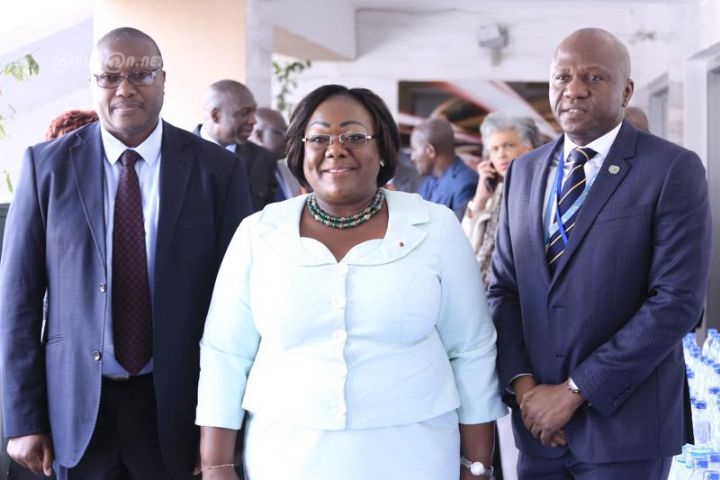The need to link the protection and conservation of the marine environment with sustainable development and improved livelihoods for local communities was highlighted when specialists from five continents began meeting on Monday, March 28, 2017 in Abidjan, Côte d’Ivoire, at the Expert Segment of the 12th Conference of the Parties (COP12) to the Abidjan Convention.

Addressing the meeting, the Executive Secretary of the Abidjan Convention, Abou Bamba, noted that this year’s conference marked a break with the past, when the focus was on conservation without necessarily mainstreaming the development needs of the population of West, Central and Southern Africa.
Taking West Africa as an example, he noted that the region’s coastal zone was the source of 56 percent of its gross domestic product, which amounted just under 623.5 billion dollars in 2015, according to the World Bank.
The Guinea Current Large Marine Ecosystem (GCLME), located off the West African seaboard, “is one of the world’s most productive marine and coastal areas,” he said, adding that “the value of the environmental goods and services provided by its coastal and marine resources is estimated to be some $18 billion a year”.
“With all this potential wealth, I think it’s time now that we link the question of the oceans to the question of development in Africa to create more jobs and improve the livelihood of our people,” Mr. Bamba stated, adding: “I think it’s now time that we start applying the principles of blue economy in Africa. I am among those who strongly believe that it’s possible and we can do it. Let’s do it then.”
The blue economy approach, based on using marine resources in ways that provide people with health, economic and other benefits while respecting the environment, is the subject of one of 20-odd draft decisions being examined by the experts meeting from Monday to Wednesday in Abidjan. The drafts will then come up for discussion and approval at the conference’s ministerial segment, on Thursday and Friday.
These decisions will determine the direction of the Convention’s activities over the next three years. They cover areas such as integrated coastal zone management, the management of mangrove ecosystems, environmental norms and standards for offshore oil and gas activities, and dealing with invasive plant and animal species, as well as illegal trade in coastal and marine wildlife.
Saving the area’s lagoons and using them responsibly to provide jobs and income, fighting against marine waste, developing regional and trans-Atlantic cooperation on coastal and marine issues, energy from the ocean, urban planning in coastal areas, and sustainable use of the ocean’s energy potential are also issues covered by the decisions focus.
The Conference of Parties is the Convention’s highest decision-making body. In-between meetings it is represented by a bureau, which takes care of day-to-day issues. Representing the chair of the bureau, Lisolomzi Fikizolo, Chief Director of Specialist Monitoring Services in South Africa’s Department of Environmental Affairs, highlighted the importance of the theme of this year’s conference.
The theme of COP12 is “integrated ocean management policies in Africa,” he noted, “which calls for the defragmentation of the way coastal areas and oceans are managed in Africa”.
Delivering the opening address at the conference, Côte d’Ivoire’s Minister of Salubrity, Environment and Sustainable Development, Anne Ouloto, gave an idea of the challenges facing governments, NGOs, communities and individuals in the Convention area as they work to protect and preserve the marine and coastal environment, while developing it sustainably.
“It’s a well-known fact that 80 percent of marine pollution comes from human activity,” she noted. “Shipping, overfishing, fragmentation and loss of habitat through the destruction of mangroves, urbanisation and the population drift towards coastal areas, the extraction of materials are all factors that accelerate coastal erosion and loss of biodiversity.”
Deploring the “lack of, or insufficient, coordination of the interventions of environmental actors at both national and regional levels,” Ms. Ouloto said, adding that it was “imperative for this 12th Conference of Parties to contribute strongly to strengthening the cooperation links between our states.”
“It’s about safeguarding our marine and coastal ecosystems, given the multiple services they provide, whether it’s fisheries, construction material, tourism, climate regulation, energy, preventing erosion, or others,” she stressed.
